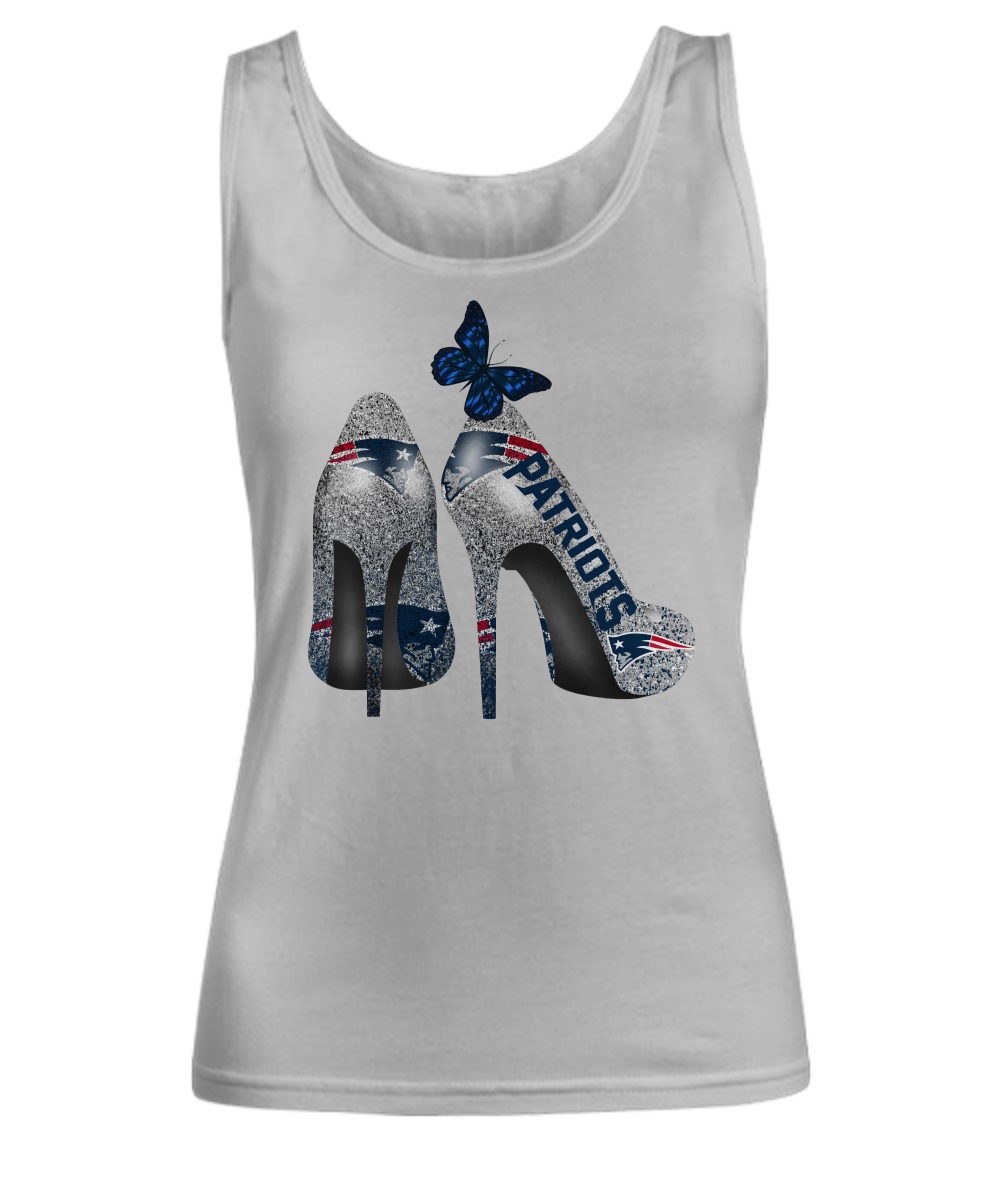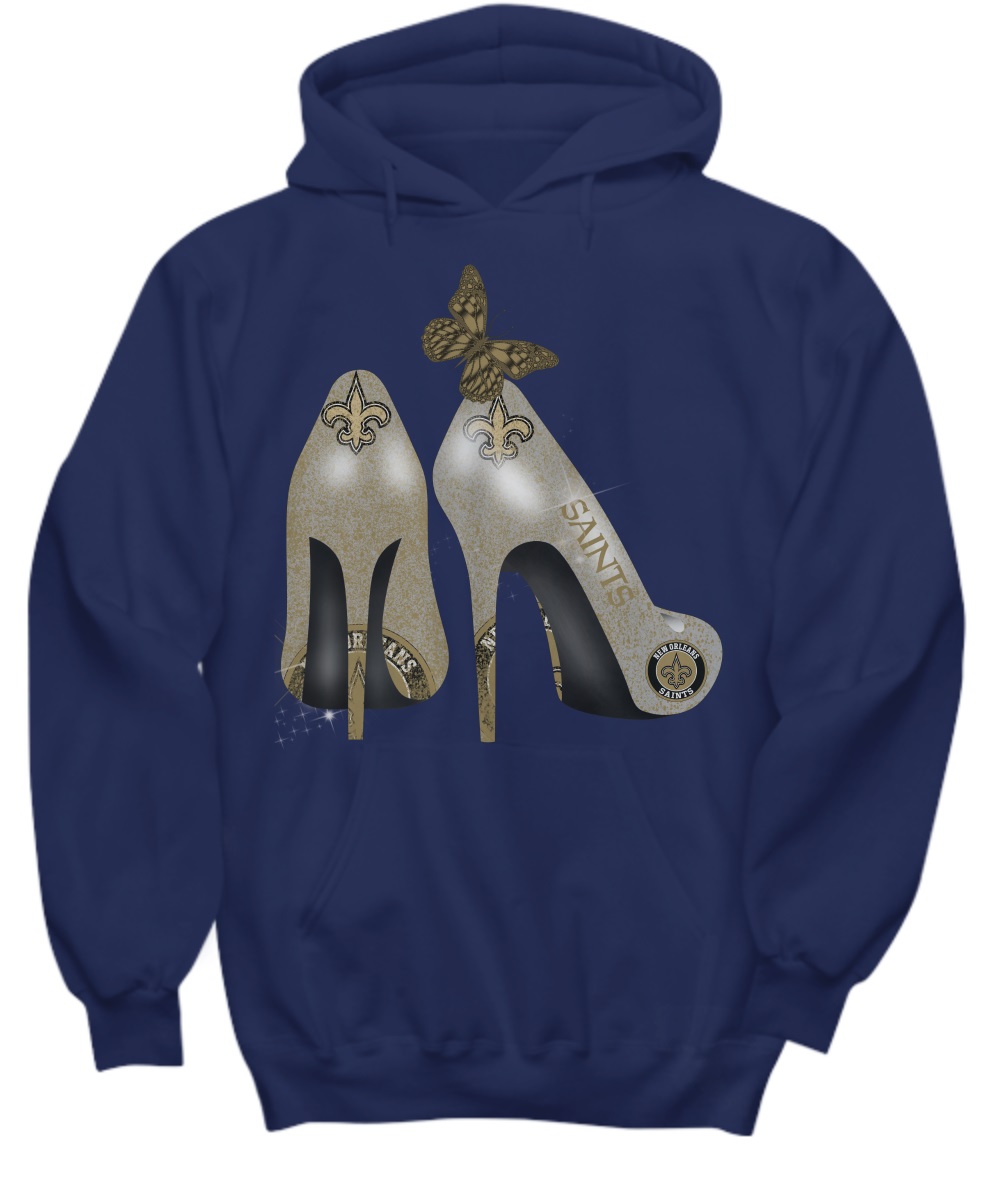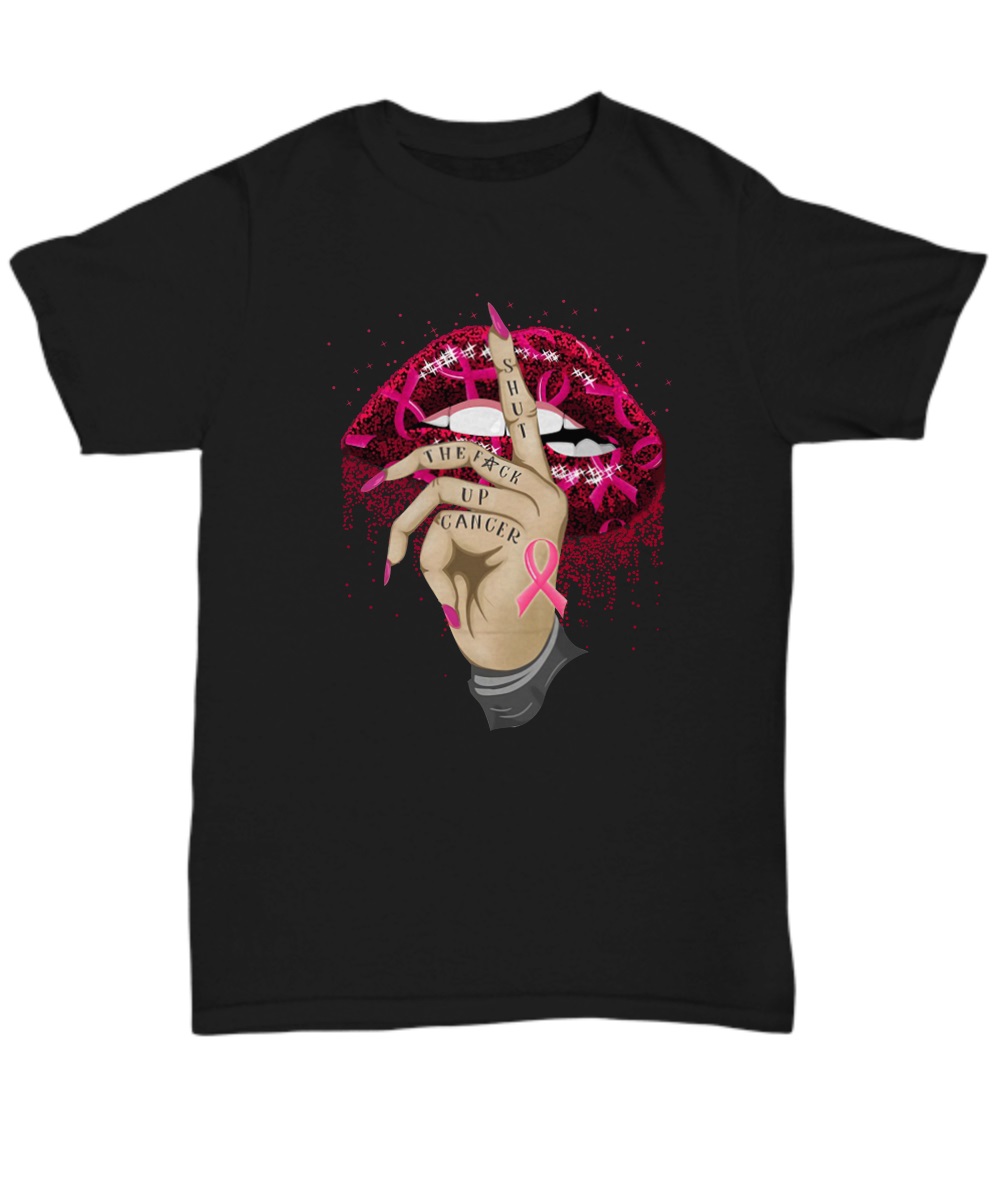Sometimes Real Super heroes Live In The Hearts Of Little Children Shirt
Or buy product at :Amazon
-
5% OFF 2 items get 5% OFF on cart total Buy 2
-
10% OFF 3 items get 10% OFF on cart total Buy 3
-
15% OFF 4 items get 15% OFF on cart total Buy 4
♥CHECK OUR BESTSELLERS - LIMITED EDITION SNEAKER FOR MEN OR WOMEN:
Best Selling Sneaker
Retro SP x J Balvin Medellín Sunset (UA) Air Jordan 3 Sneaker
Best Selling Sneaker
Best Selling Sneaker
Best Selling Sneaker
Table of Contents
ToggleSometimes Real Super heroes Live In The Hearts Of Little Children Shirt
Superhero, a fictional hero—widely popularized in comic books and comic strips, television and film, and popular culture and video games—whose extraordinary or “superhuman” powers are often displayed in a fight against crime and assorted villains, who in turn often display superhuman abilities. Superman was the first widely hailed superhero, appearing in Action Comics #1 in June 1938, and he was the prototype for the many costumed superheroes that followed. Superheroes and comic books—like the mediums of radio, film, and television that would so affect their history—largely developed in the United States through American popular culture and then spread to the world, and the history of their advancement and commercial success have been defined by several “ages”: the Golden Age (1938–54), the Silver Age (1956–69), the Bronze Age (1970–80), the Late Bronze Age (1980–84), and the Modern Age (1985–present).The precursor to the modern comic book has a long and interesting history with roots lying deep in the European development of the comic strip. The modern comic strip developed in the United States in the late 19th century, and by the end of the century collections of newspaper comic strips and cartoons began appearing on low-grade pulp paper in a variety of sizes and were generally distributed as promotional items.
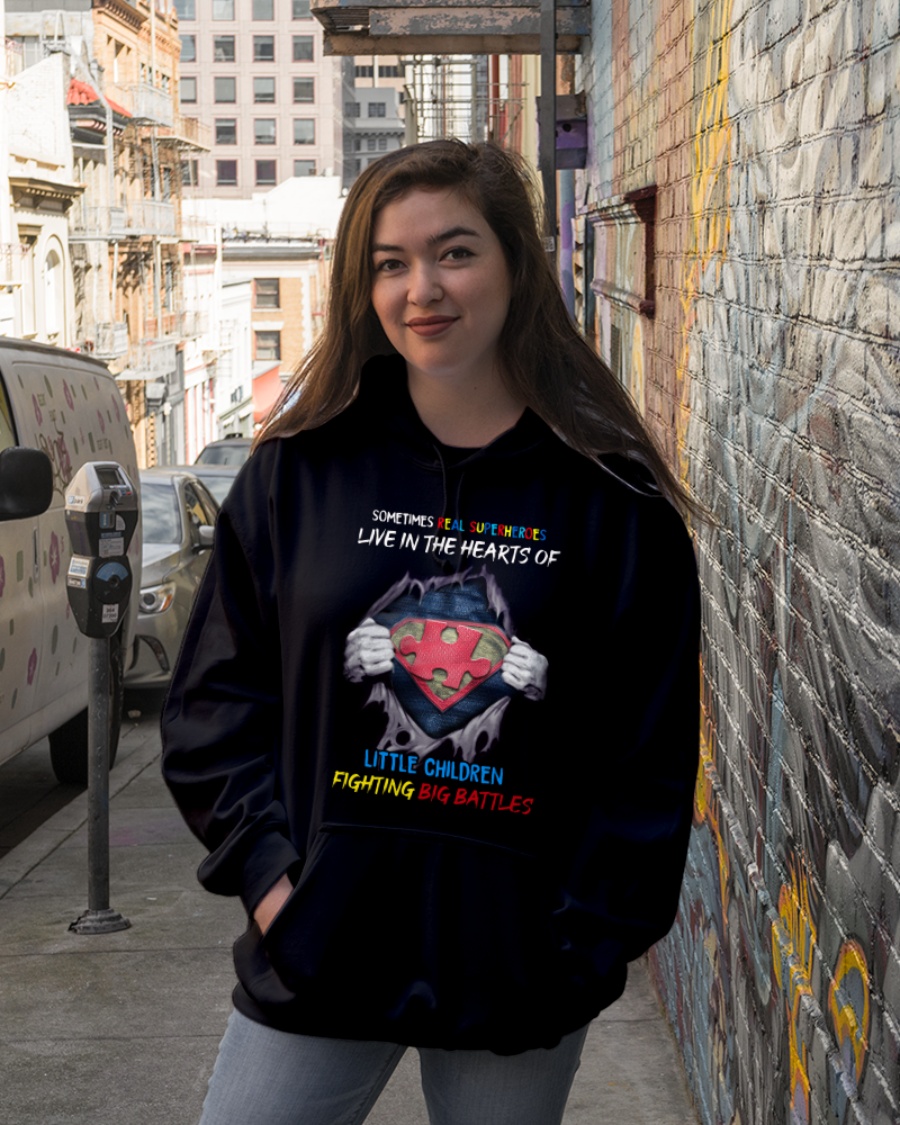
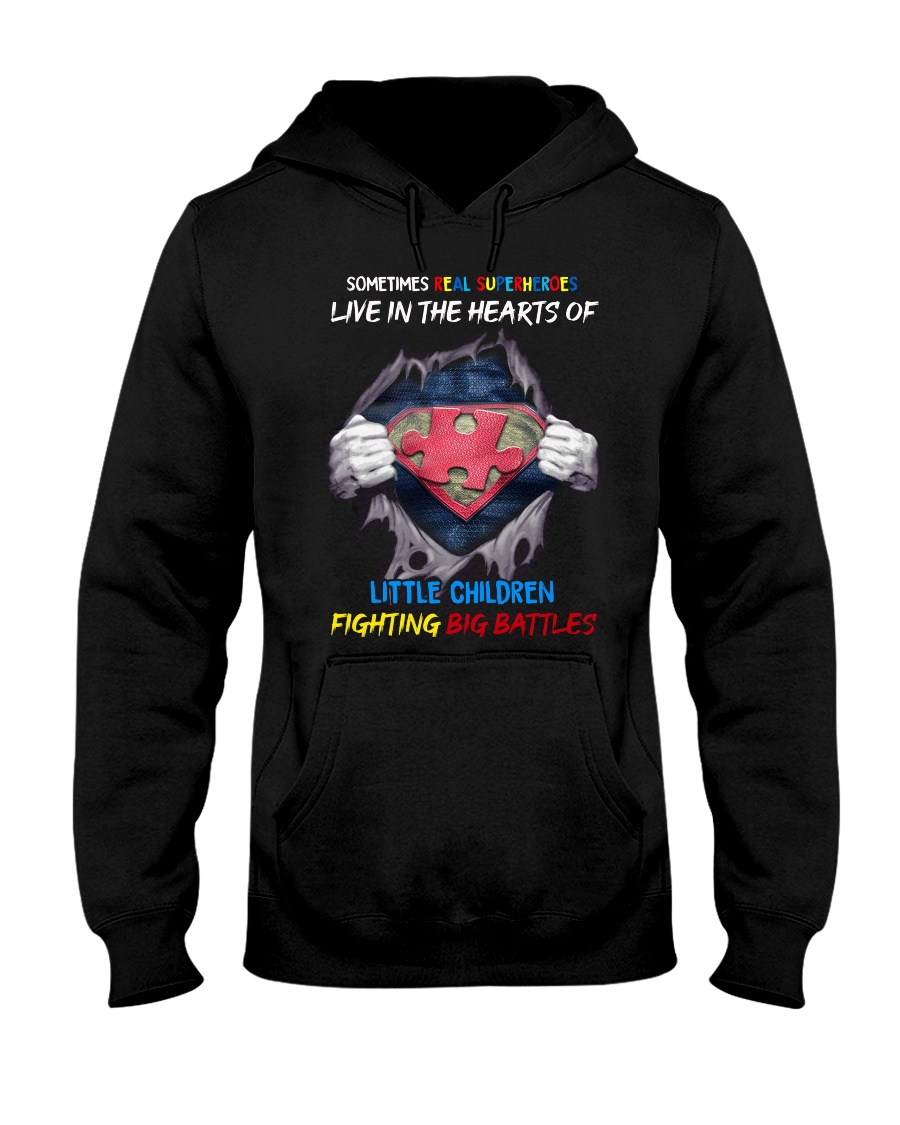
Sometimes Real Super heroes Live In The Hearts Of Little Children Shirt
The characters featured in these publications—such as the Yellow Kid and The Katzenjammer Kids—were almost entirely comical, earning the nicknames “the funnies” or “funny papers.” Dell Publishing introduced The Funnies, which resembled a Sunday newspaper comics section, in 1929. An anthology of Sunday newspaper strips, Famous Funnies #1 debuted as a monthly periodical in May 1934, and this is acknowledged as the precursor to the conventional comic book (although this series was preceded a year earlier by two similarly formatted one-shots, Funnies on Parade and Famous Funnies: A Carnival of Comics).Parallel with the rise of comics and comic books came pulp magazines, which catered to readers craving adventure and thrills.
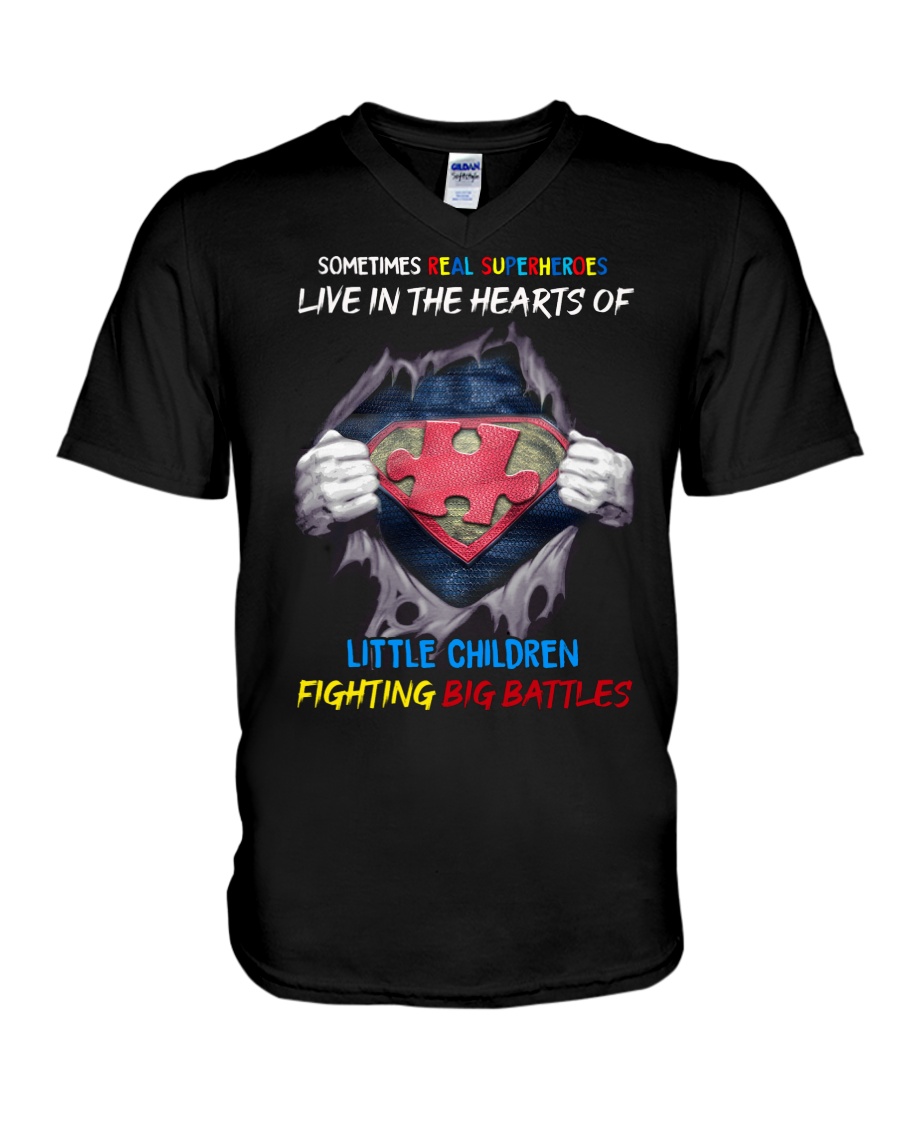
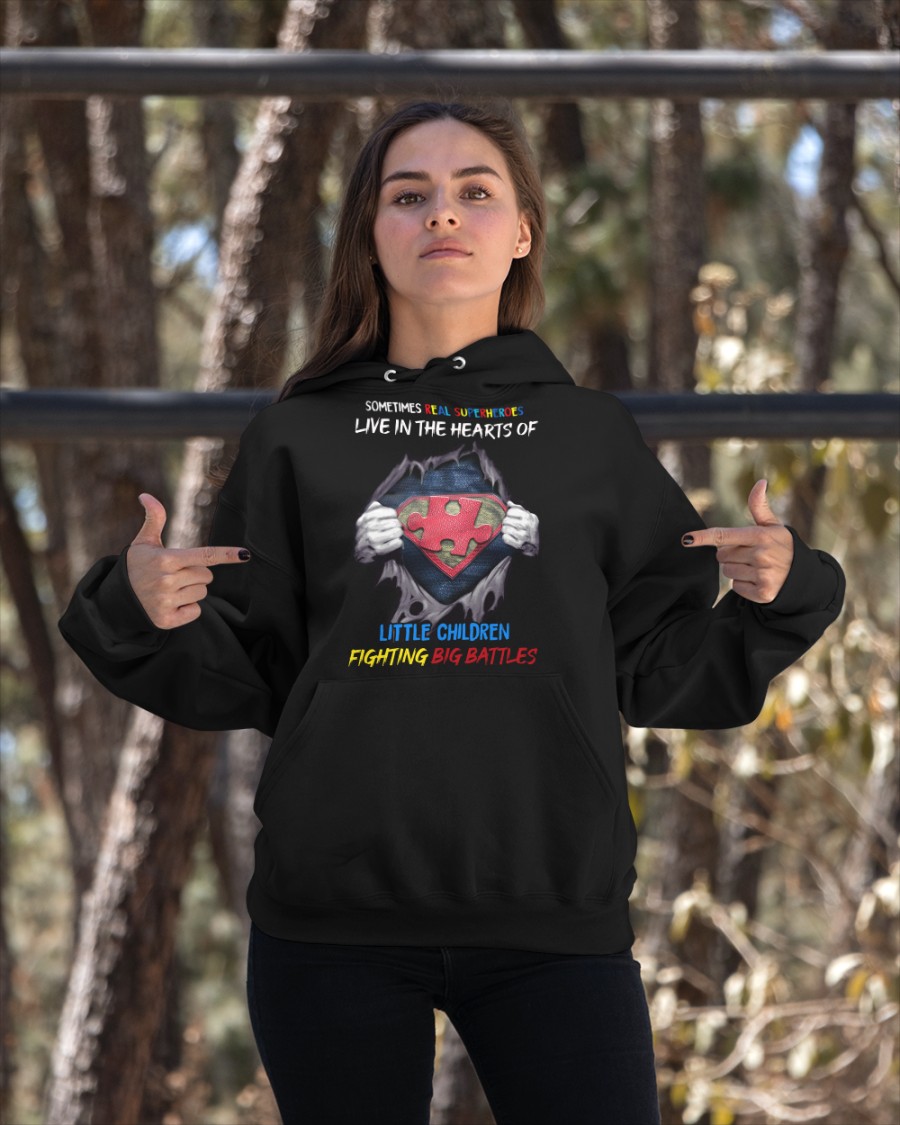
A. SHIPPING COSTS
Standard Shipping from $4.95 / 1 item
Expedited Shipping from $10.95 / 1 item
B. TRANSIT, HANDLING & ORDER CUT-OFF TIME
Generally, shipments are in transit for 10 – 15 days (Monday to Friday). Order cut-off time will be 05:00 PM Eastern Standard Time (New York). Order handling time is 3-5 business days (Monday to Friday).
C. CHANGE OF ADDRESS
We cannot change the delivery address once it is in transit. If you need to change the place to deliver your order, please contact us within 24 hours of placing your order at contact.boxboxshirt@gmail.com
D. TRACKING
Once your order has been shipped, your order comes with a tracking number allowing you to track it until it is delivered to you. Please check your tracking code in your billing mail.
E. CANCELLATIONS
If you change your mind before you have received your order, we are able to accept cancellations at any time before the order has been dispatched. If an order has already been dispatched, please refer to our refund policy.
G. PARCELS DAMAGE IN TRANSIT
If you find a parcel is damaged in transit, if possible, please reject the parcel from the courier and get in touch with our customer service. If the parcel has been delivered without you being present, please contact customer service with the next steps.
No Hassle Returns and Refunds
Our policy lasts 14 days. If 14 days have gone by since your purchase, unfortunately we can’t offer you a refund or exchange.
To be eligible for a return, your item must be unused and in the same condition that you received it. It must also be in the original packaging.
Several types of goods are exempt from being returned.
Gift cards
Downloadable software products
Some health and personal care items
To complete your return, we require a receipt or proof of purchase.
Please do not send your purchase back to the manufacturer.
There are certain situations where only partial refunds are granted (if applicable) :
– Any item not in its original condition, is damaged or missing parts for reasons not due to our error
– Any item that is returned more than 30 days after delivery
Refunds (if applicable)
Once your return is received and inspected, we will send you an email to notify you that we have received your returned item. We will also notify you of the approval or rejection of your refund.
If you are approved, then your refund will be processed, and a credit will automatically be applied to your credit card or original method of payment, within a certain amount of days.
Late or missing refunds (if applicable)
If you haven’t received a refund yet, first check your bank account again.
Then contact your credit card company, it may take some time before your refund is officially posted.
Next contact your bank. There is often some processing time before a refund is posted.
If you’ve done all of this and you still have not received your refund yet, please contact us at contact.boxboxshirt@gmail.com









